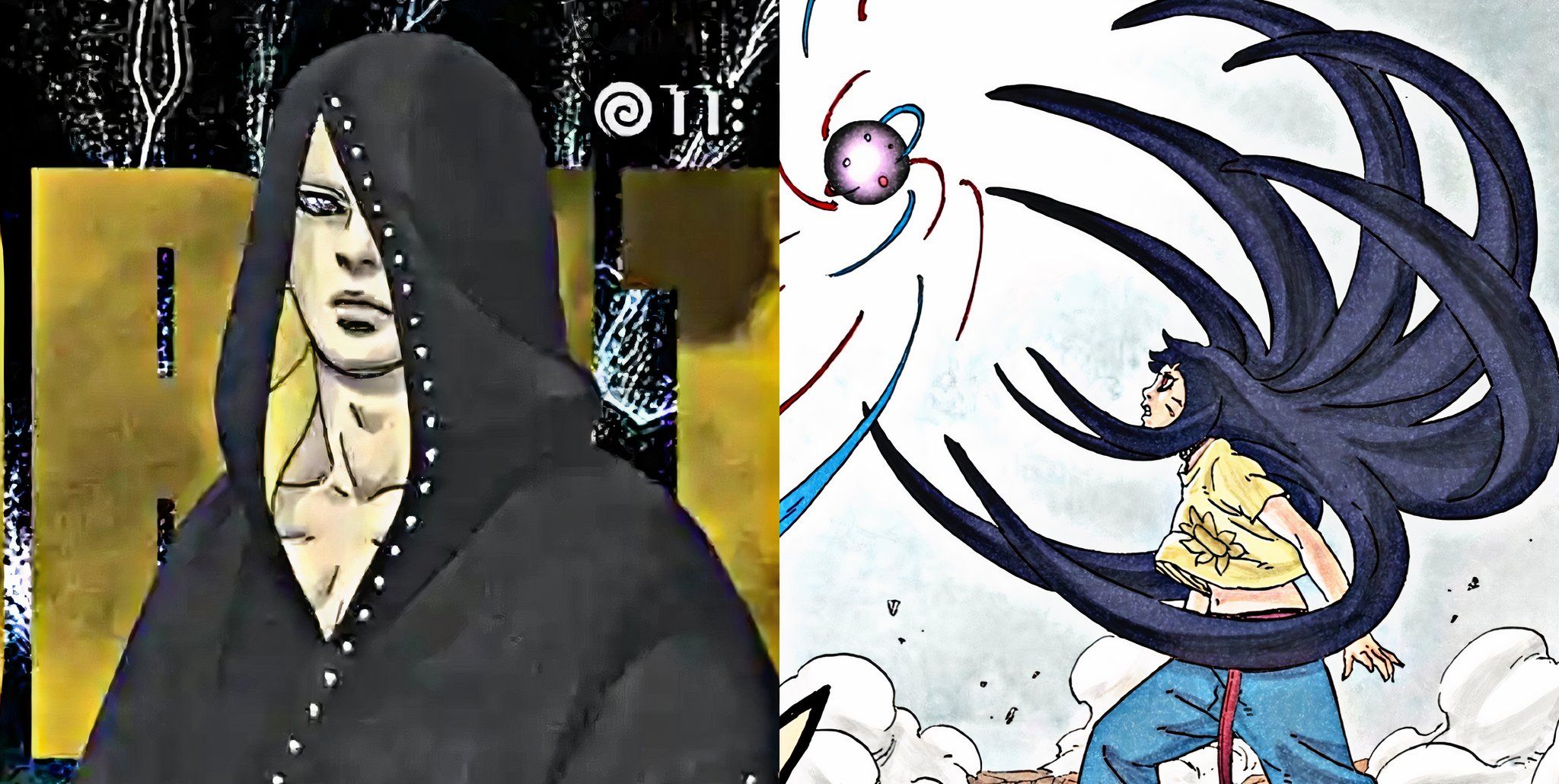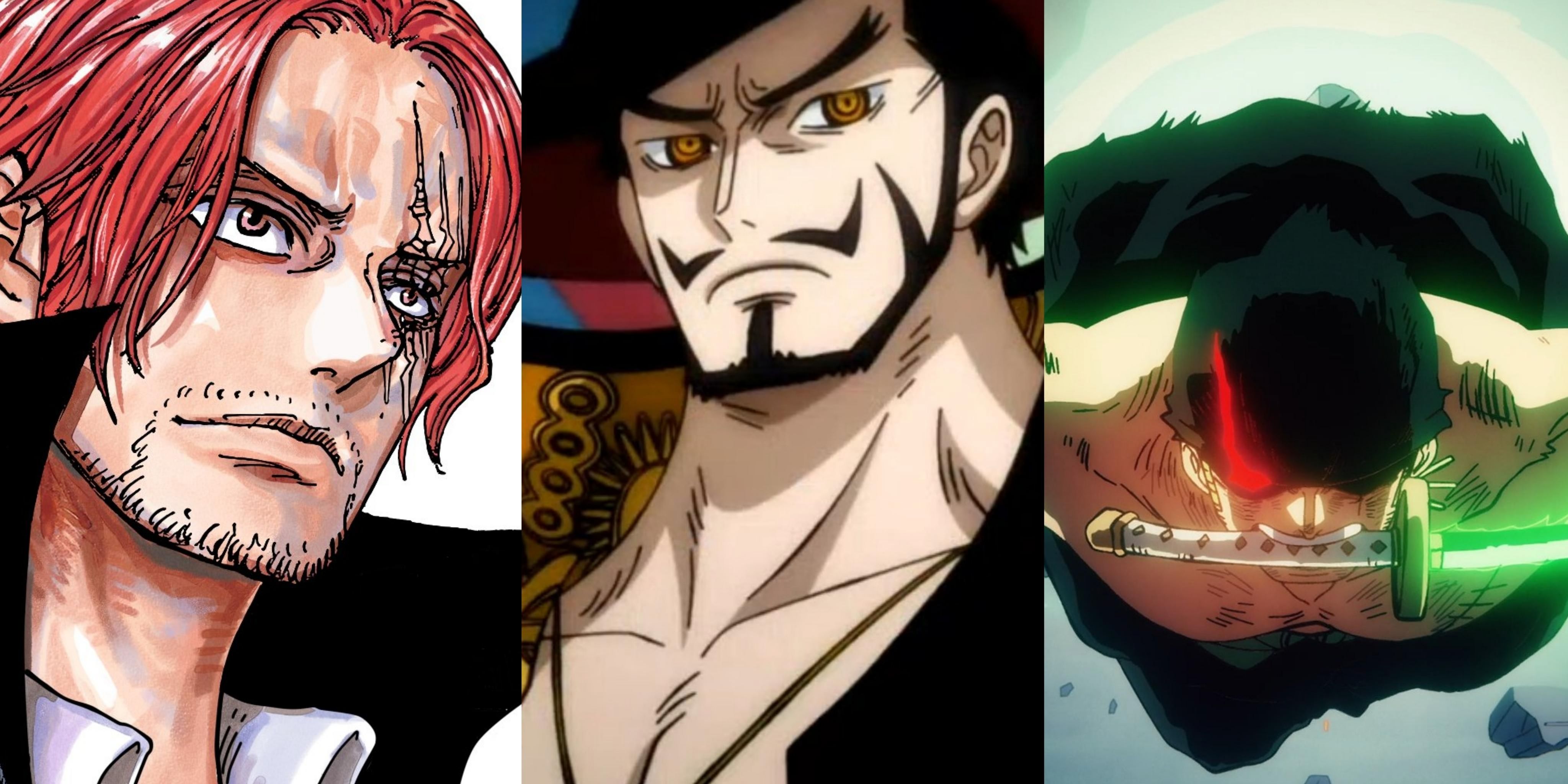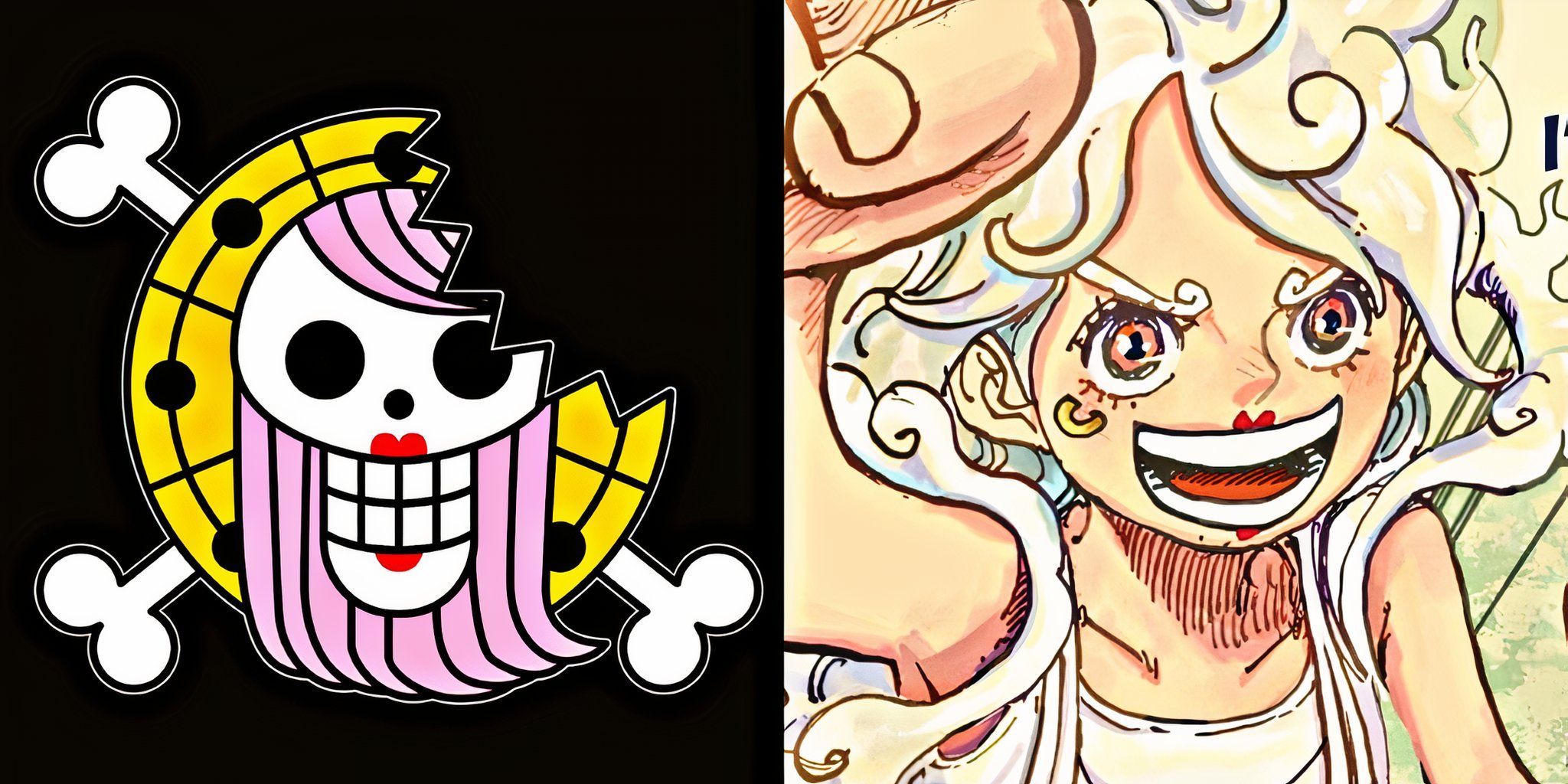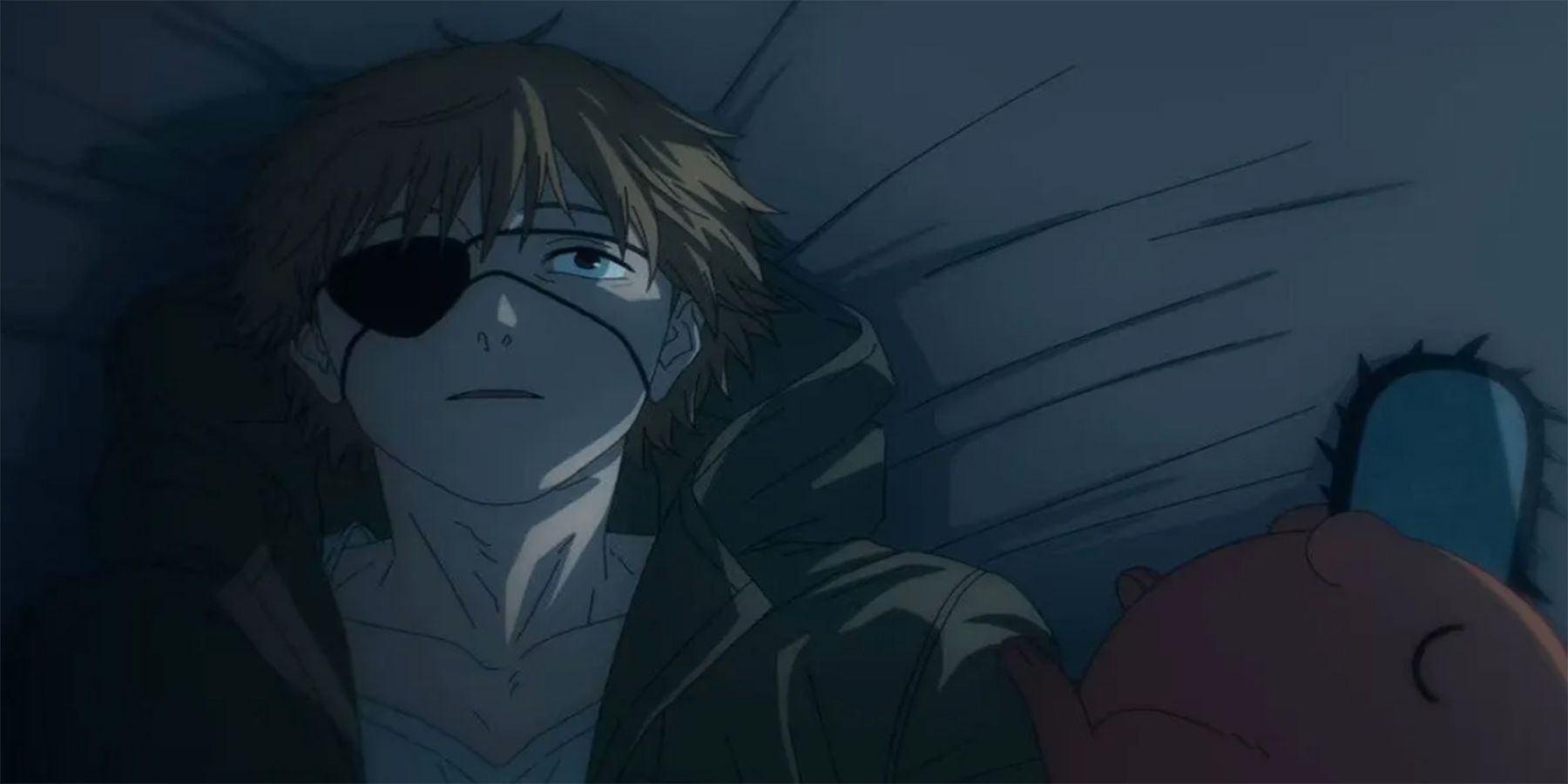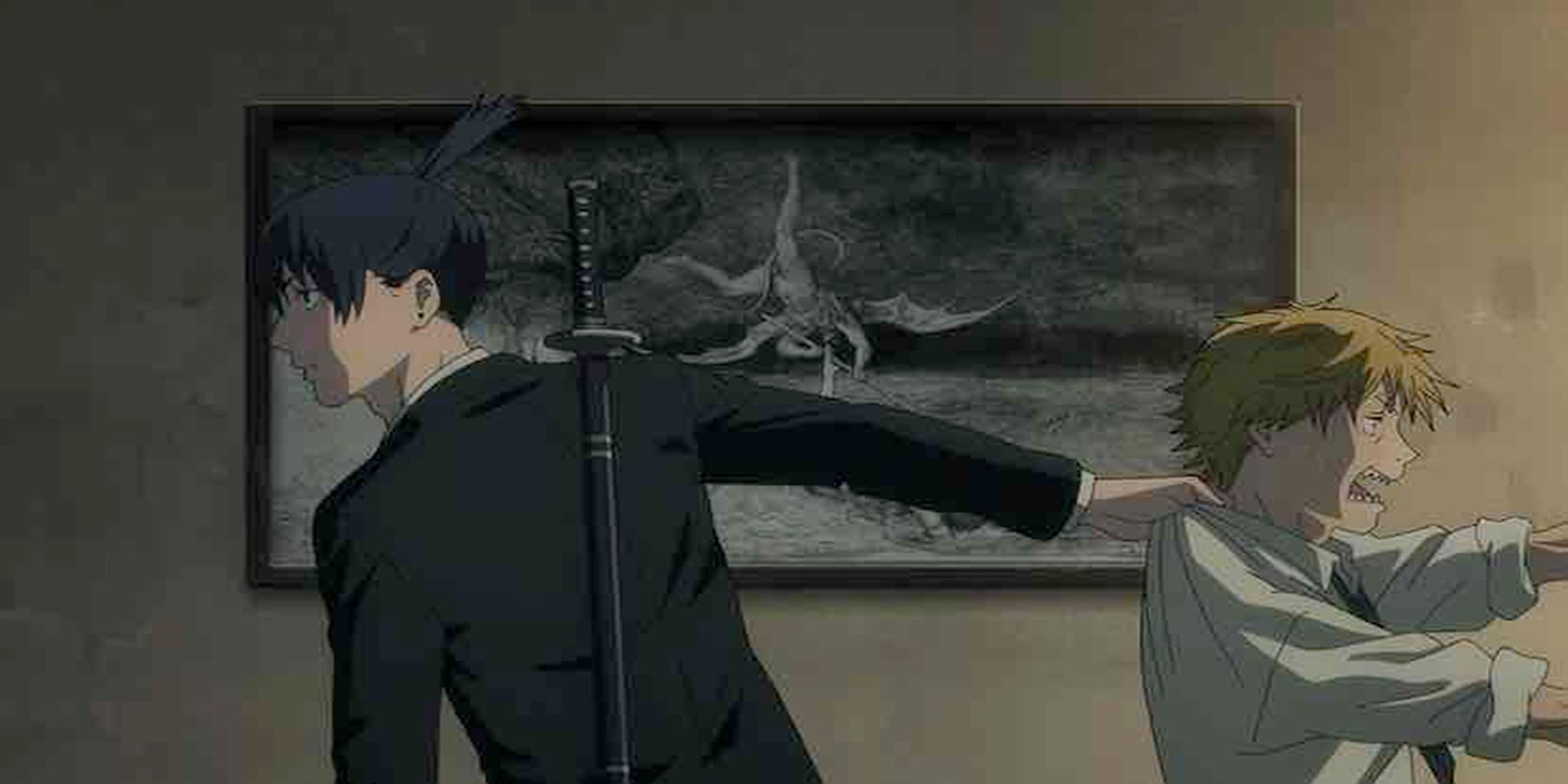From the very first episode, it's common knowledge that Denji is lacking in proper education and so it's expected that his dialogue is far from polite. But what both the Japanese and the English dub do well, is using his vocabulary to match context. For example, Denji may be a seen as a "street rat" but he chooses his words wisely.
A term that we often hear in the original is 胸 (mune), meaning, "chest" or "breast". This is the proper term and not slang as opposed to おっぱい (oppai), which is strictly slang, or 乳 (chichi), which is a proper word, but can be used as slang. Denji has definitely made it clear to us what his favorite physical assets are in women, but his choice of words and implications manage to tell a lot about his character - and the localization does just that.
Mune Melons
In episode 2, Denji laments about how much he admires Makima's chest size, going as far to tell himself that he wants to touch her. He uses "mune" twice in this scene. One for his monologue, and another for when he actually says it in front of Makima.
For non-Japanese speakers, this is a confusing scene, as he did technically say "breasts" in both cases, but the context in the second instance implied he used something closer to slang. In the English dub, he says "melons" the second time, which matches the scene in Makima's confusion. Makima then replies, "like the fruit?", whereas in the original, she repeated him. As stated previously, Japanese has a lot of implications depending on words that are used. In the original scene, it could be argued that she was asking for clarification - and so in the localization, they played it straight.
Desu or Su?
A small lesson: Japanese has both polite speech and casual speech. When talking to a superior or someone you just met, you use 敬語 (keigo), meaning, "respectful language". With keigo, polite endings are added to sentences. Ex: です, "desu" (ですか, "desuka" for questions" or ます, "masu" (ますか, "masuka" for questions). Denji attempts to use keigo when talking to a superior, but given his lack of education, it comes off slurred. There are two examples here, from episode 3 and episode 2 respectively.
At the beginning of episode 3, when Power is accusing Denji of forcing her to attack a devil, he says, 「まきまさん、此の悪魔嘘つきですよ」(Makima-san, kono akuma usotsuki desu yo), meaning, "This devil is (definitely) a liar, Miss Makima.". Though he intends to say "desu yo" ("yo", implying certainty), it comes out ですや (desu ya). It's an attempt at polite speech. Episode 2 plays this more straight forward in the English dub. When ordering food, he turns to Makima to ask her if his request was okay. He means to say 「いいですか」(ii desu ka), "is that okay?", but it comes out 「いいすか」(ii su ka). If he wasn't speaking in context, technically he wouldn't make any sense. The English dub translates this to, "that cool?".
Being Impolite With Manners
But the most significant example of the effort put into the localization, is when Denji carries Aki back to Makima's office in episode 2. There he says, 「先輩が金玉の悪魔にたまおそうあらました」(Senpai ga kintama no akuma ni tamaosou aramashita), meaning, "It seems my superior was (attacked) by a golden ball devil". "Kintama" (gold ball), is slang for "testicles". The closest translation would be "family jewels", but given the context, it would be out of character to say that. Instead, in the English dub he says, "A testicle devil appeared and went apeshit on his nutsack, ma'am." In the original Japanese, he uses a polite ending, but still incorporates slang into his sentence.
Though it makes sense, since a guy growing up on the streets fighting other guys (and only aiming for their testicles) would be using slang. Perhaps at one point during his former life, he said, "I'll kick your nuts", to someone he was up against. Saying, "I'll kick your testicles", doesn't sound very threatening. For the sake of knowledge, the proper word is 睾丸 (kougan). It should go without saying that using, "kintama" in a conversation (most likely medical related, since no one talks about that in an everyday conversation) would not be well-recieved.
Denji's not the only one that got proper localization treatment. A quick nod to Power's dialogue is also in order. In Japanese, she uses 儂 (washi) to refer to herself. "Washi" is what stereotypical old men use. So we can theorize that, being the blood devil, she's up in years. In the English dub, since there is only one first-person pronoun, the dialogue is modified, so she speaks what's reminiscent of old English.
Even though Chainsaw Man only just began airing, it's off to a fantastic start and both the Japanese and English localization teams are helping drive it to success!

